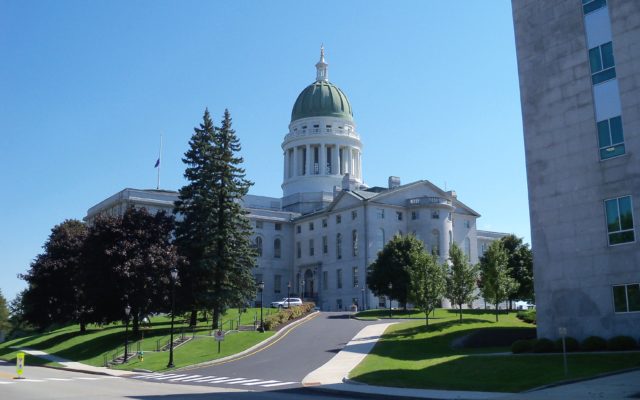
5 big problems facing Maine policymakers in 2025
By Billy Kobin, Bangor Daily News Staff
Maine has a small population and a part-time Legislature, but state leaders and lawmakers have plenty of big problems to tackle in 2025.
Some of them have not gone away over the years, illustrating their importance and complexity. Other ones may not appear on the list for 2025 after legislators and Gov. Janet Mills took various steps last year to try to solve them but remain relevant in Maine.
Here’s a look at five key issues policymakers will face in 2025.
Housing
Any talk of Maine’s problems touches on housing availability and affordability, with a poll released this year finding 3 in 10 Mainers view housing as Maine’s biggest problem.
The state commissioned a study finding it needs at least 76,000 more homes by 2030 to meet demand. The housing crisis affects municipalities of different sizes throughout the state, meaning the solutions fall on officials at all levels of government to consider and implement.
Many of the key housing debates are taking place at the local level. Councilors in Bangor made progress on approving new units after declaring 2024 the “year of housing.” Much work remains in cities and towns of all types if the state is going to get close to its goals. The prohibitive cost of construction is thwarting progress even in places that have made big changes.
Local and state lawmakers could look to Bangor to also see if its new tiny home neighborhood is worth replicating. There’s talk in Augusta of another housing reform package from House Speaker Ryan Fecteau, D-Biddeford, after he led a landmark 2022 housing law.
Additionally, the Legislature may feel pressure to respond to the Bangor Daily News’ reporting on how an eviction prevention fund excludes public housing tenants who are evicted the most.
Energy
Another issue the average Mainer can feel on a daily or monthly basis is energy and the cost of electricity in a rural New England state. This has added importance in 2025, as President-elect Donald Trump may seek to halt offshore wind and other renewable projects.
That could mark the end of Maine’s plan to use Sears Island for a new offshore wind port that the Mills administration views as key to meeting the state’s climate goals. But it missed out on a massive federal grant under President Joe Biden, meaning it was already in choppy waters.
Expect renewed debates on Maine’s generous solar subsidies in the Legislature, which Democrats control but not by as big of margins after Republicans made gains in the November election. Various Maine businesses complained this year about sudden spikes in their utility bills that resulted from a regulatory change and tied into existing concerns about cost shifting.
Keep an eye out for more updates on the northern Maine wind power and transmission line project that received a $425 million federal grant after it ran into roadblocks last year.
Trade and partnerships with Canada
Trump has said he will enact heavy tariffs on Canada, Mexico and China as soon as he takes office Jan. 20. Time will tell if that plan comes to fruition, but his vow to slap 25 percent tariffs on goods from Canada is of particular interest here given Canada is Maine’s top trading partner.
State lawmakers have no power here, other than their bully pulpits and other means of trying to get the ears of Trump administration officials. Canada accounted for 70 percent of Maine’s imports and 31 percent of its exports this August, according to state data.
Fuel and seafood are the top goods Maine and Canada exchange, with Maine’s heritage industries that include lobstering and logging expected to feel the effects of any new tariffs Trump puts in place. Canadian officials are discussing potential responses, and economists say a retaliatory battle would hit consumers’ pocketbooks hard.
Child welfare
The problems associated with Maine’s child welfare system and the dozens of children who died in recent years in cases associated with abuse or neglect have bedeviled lawmakers and governors from both parties. More than 100 staff in the Office of Child and Family Services signed in December a letter of no confidence in their director, Bobbi Johnson, who only became the office’s leader at the start of 2024.
Legislators have spent countless hours discussing how to improve conditions for children and for caseworkers, and numerous studies have made recommendations for improvements, but things may boil over in 2025 if noticeable changes do not happen. Policymakers also face pressure to continue to improve Maine’s juvenile justice and behavioral health systems.
Property taxes
Lastly, bigger property tax bills have frustrated homeowners throughout Maine, the state with the nation’s oldest population by median age. Municipalities have caught up on long-deferred reevaluations while struggling to keep in check their local and school budgets.
Lawmakers will likely hear various proposals starting in January on how to ease the tax burden for homeowners and renters. Sen. Joe Baldacci, D-Bangor, has proposed a constitutional amendment that would create a 2 percent annual cap on property tax assessment increases for residents 65 and older, with Baldacci also calling for increases to revenue sharing and Maine’s homestead exemption.
This idea is only a starting point, with more proposals expected, but there is a bipartisan appetite for tackling the property tax issue.